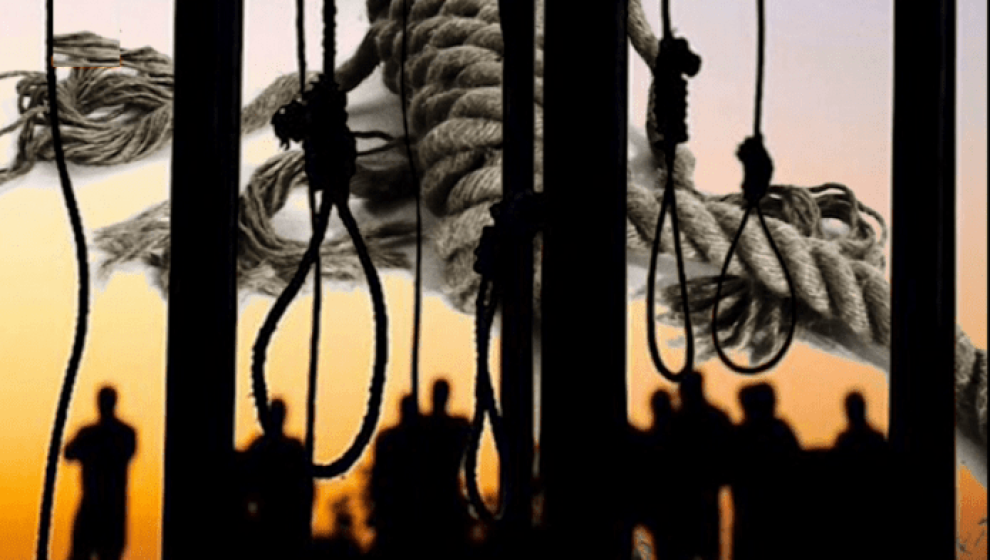Subscripe to be the first to know about our updates!

Human Rights Abuses in Iran in March
Iran has been hit by devastating flash floods since mid-March and over 200 have been reported dead. The Regime responded not with government aid, but with sending in suppressive forces, like the Revolutionary Guard Corps (IRGC) and the Bassij, to suppress any protests, as well as threatening to arrest those who spread news of the floods on social media.
In fact, it was the Iranian people who rushed in to save their fellow people and local businesses who offered free services to those who had lost everything.
This should not be surprising, especially given the fact that these floods are partially the result of decades of mismanagement of the environment by the mullahs (i.e. over-building, destroying natural flood barriers, deforestation, not dredging rivers, etc).
But this is just one of the many examples of disastrous policies under the Regime in March that have severely affected the rights of the people. Here we will go over the most galling abuses in Iran in the past month, but the read the chilling report in full, click here.
Death penalty
There were 15 executions in March, including:
- One prisoner was hanged in public, on March 14
- Three prisoners in Birjand Prison were killed on March 11 for reportedly killing two armed regime agents
- One married father, who was possibly a former member of Iran’s national kickboxing team, was executed on March 10
Torture, inhuman or degrading punishment
There were several reports of mistreatment and torture inside Iran’s prisons, specifically of political prisoners, which included three human rights activists – Nasrin Sotoudeh, Jafar Azimzadeh and Mostafa Motowri – being sentenced to flogging.
Inhumane treatment of prisoners
Denial of treatment
Iranian authorities in Raja’i Shahr and Urmia Central prison have increased pressure on political prisoners by denying them access to adequate medical care. This is a violation of international law and Iranian prison regulations.
Political prisoner Ali Badrkhani, who is detained at Urmia Central Prison, has been denied medical treatment for his kidney disease. He is also housed with ordinary criminals, which violates the principle of separation of prisoner categories.
Political prisoner Abolghasem Fouladvand, who is locked up at Raja’i Shahr Prison, is being denied hospital transfers for his heart failure.
Lack of due process
Labour activist Arsham Rezaei was denied access to a lawyer for his surprise trial on March 15, where he was sentenced to 8.5 years in prison for “spreading propaganda against the state,” “assembly and collusion against national security” and “insulting the supreme leader”.
It is unclear whether he was denied the lawyer or could not find one in time as he was denied prior notice of the trial.
Freedom of religion and belief
Baha’is
Two members of the Baha’i religious minority were arrested in March. One of them, Saeed Nasseri, was arrested on March 21, when he visited the Evin prison’s prosecutor office to discuss his brother’s arrest on March 18.
Gonabadi Dervishes
Twenty-three members of the Sufi Dervish order have been sentenced to prison terms and lashes, which total:
- 190 years of prison
- 46 years of exile
- 1,776 lashes
- A a 46-year travel ban
- A 46-year ban on involvement in social and political activities
They refused to go to the sentencing hearing as they were protesting the “illegal house arrest” of their leader and the lack of due process.
Persecution of ethnic minorities
While the state security forces arrested at least eight Ahwazi Arabs and 24 Kurdish people were.
These human rights abuses are not uncommon in Iran and will remain until the Regime falls.